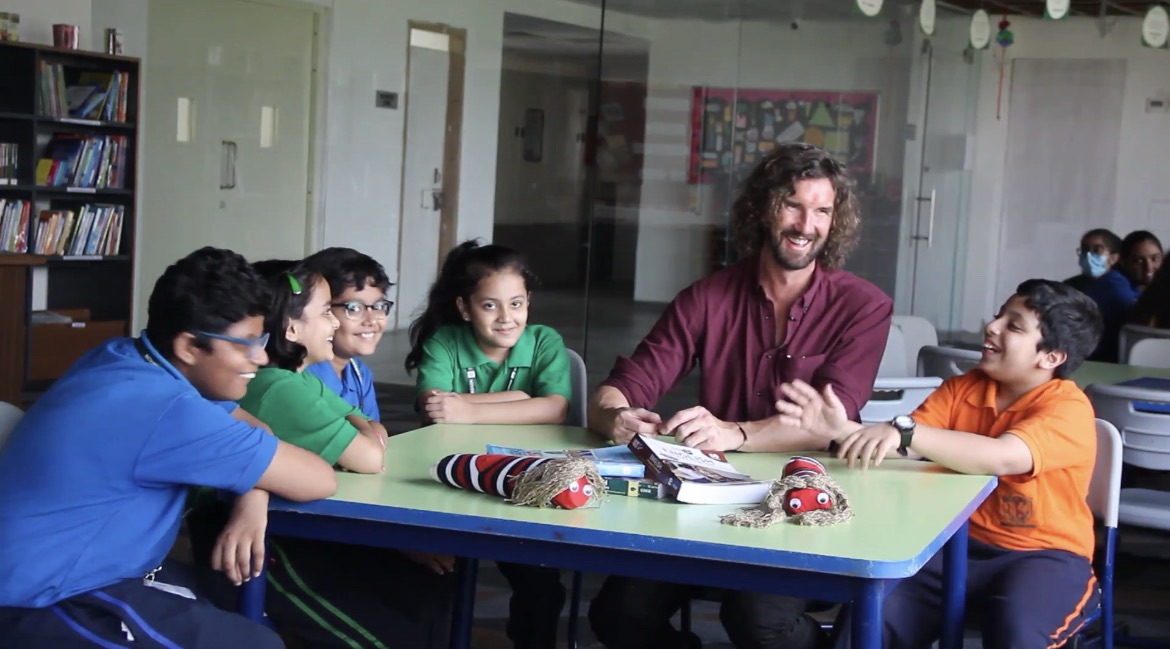Parenting is a remarkable journey that presents us with countless opportunities to shape and support our child’s growth. As parents, we play a crucial role in providing a nurturing environment that fosters their curiosity, confidence, and overall development.

In this comprehensive guide, we will explore practical strategies and tips to help you create a loving and supportive atmosphere for your child to thrive. Each of the following points is designed to promote a strong parent-child bond and encourage the holistic growth of your little one.
Here’s 100 ways:
Foster Independence: Allow Your Child to Pack and Carry Their Bag to School
- Encourage your child’s sense of responsibility by letting them pack and carry their own school bag. This simple act promotes independence and empowers them to take ownership of their belongings.
Take Time to Observe and Understand: Characteristics Displayed in Free Play
- Dedicate moments to observe your child during their free playtime. Take note of the unique characteristics they display, such as problem-solving skills, creativity, or empathy. Understanding their individual strengths can help you further support their development.
Prioritize Quality Time: Spend Moments Together Before Bed
- Make it a priority to spend quality time with your child before bedtime. These moments create a loving and secure environment, allowing them to unwind and share their thoughts and experiences from the day.
Establish Healthy Sleep Habits: Ensure Suitable Bedtime
- Set a suitable bedtime that aligns with your child’s age and needs. A consistent sleep schedule supports their physical and mental development and promotes overall well-being.
Promote Calm Bedtime Rituals: Making Going to Bed and Waking Up a Soothing Process
- Create a calming bedtime routine that helps your child relax and transition to sleep. Similarly, establish soothing morning rituals that set a positive tone for the day ahead.
Lead by Example: Model Behavior You Want to See
- Children learn by observing the behavior of their parents. Be a positive role model by demonstrating kindness, patience, respect, and other values you wish to instill in your child.
Set Goals and Encourage Projects: Creating Future Milestones
- Help your child set goals and work on projects that ignite their motivation and enthusiasm. Looking forward to future milestones fosters a sense of purpose and cultivates determination.
Build Together: Foster Collaboration and Creativity
- Engage in joint activities with your child, such as building crafts, models, or even cooking meals together. These shared experiences foster collaboration, strengthen the parent-child bond, and encourage creativity.
Designate a Special Space: A Shelf for Your Child’s Books
- Create a dedicated shelf or area in your home for your child’s books. This special space promotes a love for reading and encourages independent exploration of literature.
Walk at Their Pace: Engage in Meaningful Conversations
- Slow down and match your child’s pace when walking together. Utilize this time to engage in meaningful conversations, play games, and explore the world around you. These moments strengthen your connection and provide opportunities for learning and discovery.
Avoid Physical Punishment: Positive Discipline Techniques
- Never resort to physical punishment as a consequence for your child’s actions. Instead, focus on positive discipline techniques that emphasize understanding, empathy, and effective communication.
Limit Screen Time: Promote Tactile and Interactive Activities
- Minimize screen time entertainment by providing engaging tactile materials and interactive activities around the house. Encourage creativity, exploration, and imaginative play to foster holistic development.
Encourage Emotional Intelligence: Talk About Feelings and Their Significance
- Create a safe and open space for your child to express their emotions. Engage in conversations about feelings, helping them develop emotional intelligence and navigate life’s challenges.
Share Literary Experiences: Read and Discuss Books Together
- Select a book to read together and discuss its themes, characters, and lessons while taking a walk or engaging in another shared activity. This cultivates a love for reading and promotes critical thinking skills.
Punctuality Matters: Always Arrive at School on Time
- Develop a habit of punctuality by consistently arriving at school on time. This teaches your child the value of being prompt and prepared while ensuring a smooth start to their day.
Allow Freedom of Expression: Let Your Child Choose Their Clothing
- Give your child the freedom to choose their own clothing, allowing them to express their personal style and preferences. Embrace their individuality, even if it means wearing clothes in unconventional ways.
Encourage Dressing Independence: Allocate Sufficient Time
- Allocate ample time for your child to get dressed at a leisurely pace. This promotes independence and eliminates morning rush, setting a positive tone for the day.
Embrace Nature: Spend Quality Time Outdoors
- Dedicate time to explore the wonders of nature with your child. Engage in activities like walking, observing patterns in the environment, using a magnifying glass for investigation, and discussing the importance of preserving nature.
Celebrate Achievements: Promote a Culture of Appreciation
- Show appreciation for your child’s efforts and accomplishments. Place thank-you notes or stickers in their lunch boxes or on their books, acknowledging their kindness, compassion, and achievements.
Encourage Involvement: Let Your Child Participate in Shopping for Lunches
- Involve your child in selecting and buying their own lunches. Use this opportunity to discuss the nutritional value of food, helping them make informed choices.
Teach Life Skills: Educate Your Child About Home Dangers
- Educate your child about potential hazards in the home, such as electricity, fire, and gas. Teach them how these elements work and the importance of practicing safety measures.
Count and Observe: Transform Everyday Moments into Learning Opportunities
- Encourage counting and observation skills by incorporating them into everyday activities. Count objects like trees, stones, waves, or airplanes, and observe patterns in nature using a magnifying glass.
Promote Environmental Awareness: Discuss the Importance of Nature
- Engage in conversations about the significance of nature and the role it plays in our lives. Teach your child the importance of preserving the environment for future generations.
Pass Down Family Stories: Share True Stories from Your Family History
- Share true stories from your family history with your child. Help them understand their roots, heritage, and the context of their family’s journey.
Learn from Elders: Listen to and Appreciate Grandparents’ Stories
- Encourage your child to listen to stories shared by their grandparents. These stories provide valuable insights and context, connecting your child to their family history.
Explore Ancestry: Research and Discover Your Family Tree
- Investigate your family tree together with your child. Discover your ancestral origins, trace your lineage, and learn about long-lost relatives.
Encourage Self-Expression: Help Your Child Create a Biography
- Ask your child to create a biography once a year. Assist them by printing photos taken on your phone and allowing them to arrange and showcase their memories.
Embrace Failure: Teach the Importance of Resilience
- Promote a healthy attitude toward failure by emphasizing that it is okay to lose and experience setbacks. Teach your child resilience, perseverance, and the value of learning from mistakes.
Instill Philanthropy: Involve Your Child in Giving Back
- Teach your child about the importance of helping others and getting involved in philanthropic activities. Engage them in charitable endeavors to foster empathy and compassion.
Discuss Positive Traits: Encourage Virtues in Everyday Life
- Engage in conversations about virtues such as patience, cooperativeness, courage, ingenuity, cheerfulness, helpfulness, and kindness. Emphasize the value of these qualities in daily interactions.
Create Meaningful Connections: Sing, Laugh, and Play Together
- Sing songs together, even if your singing voices are less than perfect. Share laughter and humor, fostering a joyful atmosphere in which your child’s sense of humor can flourish.
Prioritize Free Time: Allow Space for Imagination and Reflection
- Ensure your child has free time for unstructured play and independent thoughts. Avoid overscheduling with too many after-school activities, promoting imaginative play and self-reflection.
Teach Home Safety: Educate Your Child about Household Dangers
- Educate your child about potential hazards within the home, such as electricity, fire, and gas. Explain how these elements work and the precautions necessary to stay safe.
Engage in Mathematical Learning: Count and Observe Patterns
- Utilize everyday opportunities to count and identify patterns. Count objects like trees, stones, waves, or airplanes, fostering a natural curiosity for mathematical concepts.
Visit Cultural Spaces: Explore Museums and Appreciate Art
- Visit local museums with your child to expose them to art, culture, and history. Engage in discussions about the significance of different artworks and expand their knowledge.
Encourage Independence: Involve Your Child in Household Chores
- Assign age-appropriate responsibilities to your child and create a chart on the wall to track each family member’s tasks. Promote a sense of equality, fairness, and accountability.
Cultivate Global Understanding: Embrace Multicultural Experiences
- Foster multicultural awareness by visiting diverse areas of your town, exploring different cuisines, and embracing cultural diversity within your home. Encourage a global perspective.
Nurture Creativity: Tell Stories, Recite Poems, and Share Music
- Share stories, recite poems, and listen to a variety of music with your child. Encourage their creativity by exploring different forms of artistic expression.
Respect Nature: Install a Bird Feeder and Learn About Wildlife
- Install a bird feeder and teach your child the importance of filling it regularly. Observe and learn about the various bird species that visit, promoting a love and respect for wildlife.
Prepare for New Experiences: Discuss Feelings and Emotions
- Prepare your child for new experiences by discussing feelings and emotions associated with upcoming events. Help them develop emotional resilience and navigate transitions.
Express Gratitude: Appreciate Your Child’s Contributions
- Show gratitude to your child by leaving thank-you notes in their lunch box or placing stickers on their belongings. Express your appreciation for their kindness and compassionate actions.
Promote Nutritional Awareness: Discuss Origins and Benefits of Food
- Engage your child in conversations about the origins and nutritional benefits of different foods. Help them understand how food nourishes their bodies.
Encourage Ownership: Provide Appropriately Sized Furniture
- Provide your child with appropriately sized furniture and encourage them to take responsibility for their belongings. Promote tidiness and a sense of ownership.
Cultivate Curiosity: Discuss Changes in the Environment
- While driving or walking, notice changes in the landscape, weather, or cityscape and engage your child in discussions about these transformations. Encourage their curiosity and observation skills.
Promote Manners and Gratitude: Appreciate Small Acts of Kindness
- Teach your child the importance of politeness and gratitude by appreciating even the smallest acts of kindness. Foster a culture of gratitude within your family.
Embrace Intergenerational Connections: Engage with People of All Ages
- Encourage your child to interact with people of different ages, fostering respect and appreciation for the wisdom and experiences of older generations.
By incorporating these strategies into your parenting approach, you can create a loving, nurturing, and growth-oriented environment for your child.
Remember that each child is unique, and adapting these tips to suit their individual needs will further enhance their development and well-being. Enjoy this extraordinary journey of parenthood and cherish the precious moments of growth and discovery with your child.








